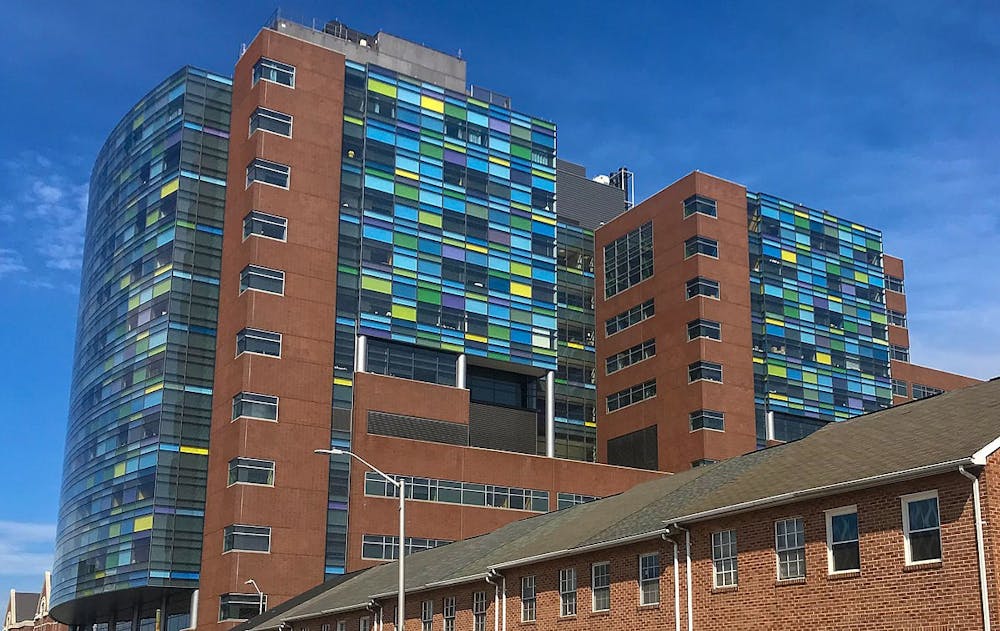When Valerie Gomez, a senior Molecular and Cellular Biology major, planned to apply to medical school in the fall of 2019, she felt anxious about how she would manage the interview process. Typically, attending so many interviews would force her to miss class days and spend a large amount of money on travel.
In a bittersweet twist of fate, this application cycle has little resemblance to the one Gomez envisioned for herself a year ago.
The road to medical school has never been an easy one, but this year’s applicants have faced a cycle unlike any other. According to a poll conducted by Kaplan, most schools have made their admission process more flexible in response to the school closures, test cancelations and shutdowns that took place in the spring due to COVID-19.
These changes include accepting pass/fail grades and taking a “holistic review” of applicants who may have struggled to fulfill clinical experience or other extracurriculars due to social distancing guidelines.
As a result of the increased accessibility of the application, the number of applicants has risen 17% from the previous year, meaning that this flexibility will in no way make the cycle a less competitive one.
According to Sondra Rahmeh, a Biomedical Engineering major who graduated in 2019, one of the biggest differences between this year’s cycle and the one she expected was the number of people who applied without scores due to delays in Medical College Admission Test (MCAT) administration.
While the Graduate Record Examination and Law School Admission Test are offered to students online this year, the Association of American Medical Colleges (AAMC) decided to continue the requirement that the MCAT be taken in person due to test security and equity concerns.
Rahmeh’s in-person MCAT date in May was canceled, and she sat in an online queue for two hours before getting it rescheduled.
When she finally arrived at the testing center, Rahmeh reported little to no social distancing protocols, a pattern that has been corroborated by reports at testing centers across the nation.
Even with the extension on MCAT submission offered by most medical schools, Rahmeh was still forced to apply without knowing her score.
Rahmeh also expressed concern about the virtual interview process and how it was difficult to compare to a similar in-person experience. With virtual interviews, informal interactions with current students and social events are more difficult to replicate, meaning that the different schools can very easily blend together.
“It’s been very difficult to get a sense of all the different schools with just a Zoom interview,” Rahmeh said.
In response to interviews becoming virtual this year, some medical schools also used the Video Interview Tool for Admissions (VITA) system to learn about applicants. This one-way interview tool asks applicants to submit videos answering a certain question within an allotted time-frame.
“That was also very nerve-wracking because the best part of an interview is you can get some feedback from a person,” Rahmeh said.
Given the novelty of the program, it is yet to be determined how VITA performance would affect an applicant’s chances of admission.
Gomez also acknowledged that virtual interviews were not what she expected, but for her they ended up being a “blessing in disguise.”
“In one week, I had three interviews in a row and they were all in different states, so I would not have been able to go to all three [otherwise],” Gomez said.
Interviews are just one aspect of the application process that has become more accessible to prospective students. In 2020, the AAMC’s Fee Assistance Program increased the maximum income of students qualified for application waivers from 300% to 400% of the federal poverty level.
Both Gonzalez and Rahmeh argued that the COVID-19 pandemic reinforced their interest in the medical profession, even with the risks involved.
Rahmeh mentioned that the pandemic has shown her how doctors are not as trusted by the public as she initially believed.
“It made me think a lot more about what exactly a physician’s role is within the community,” she said. “It has a lot more to do with education and public health than I believed.”
Gomez also contemplated the role of physicians in light of current doctors’ sacrifices to fight the surge of cases in the United States.
“This is something that could very possibly happen when you are a doctor, and it didn’t scare me,” she said.
Having been accepted to medical school, Gomez has one piece of advice to share with future applicants: Don’t fall into the trap of comparing your profile to others.
“If you’re putting in all the work, and you feel that you are ready, go for it,” she said.
If Gomez could muster the courage to apply during one of the strangest cycles in modern history, then anyone who sets their mind to it can do so as well.
Correction: This article originally referred to the company which conducted a poll of medical school admissions process as Kaplan Test Prep. The name of the company is Kaplan.
The News-Letter regrets this error.





